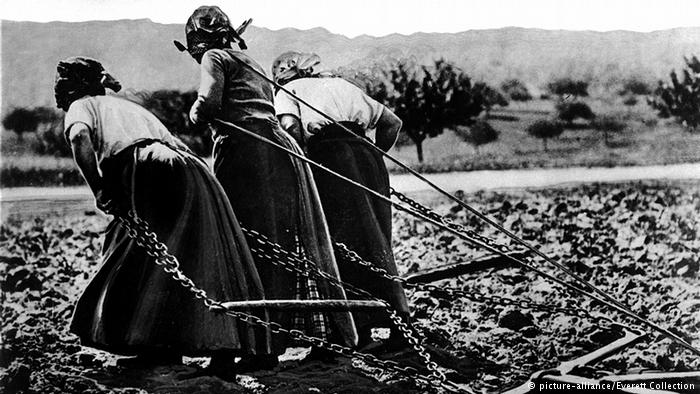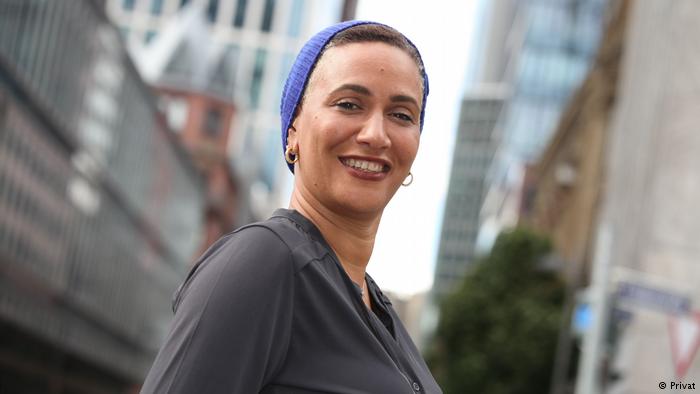“A Silent Revolution” Pioneering Saudi women
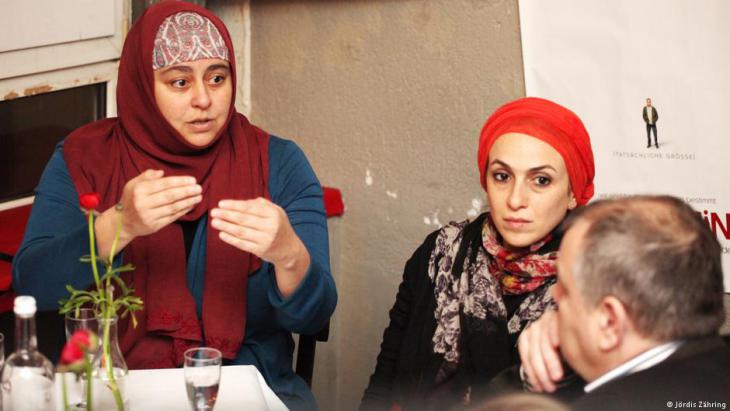
Thanks to the courage of a few, Saudi Arabian women are now managing companies and will soon be allowed to drive cars. The documentary “A Silent Revolution” showcases Saudi Arabia’s female movers and shakers. Elizabeth Grenier talked to director Danya Alhamrani and producer Dania Nassief
How did you both make it in film-making and producing?
Danya Alhamrani: I wanted to make films my whole life, ever since I was a child. It took me a long time to get there. Eventually I studied film-making in the U.S. and worked in the American industry for a couple of years. Then I realised I might as well start my own company in Saudi Arabia.
Dania Nassief: I was going to open my event management company and Danya said no, we need to join forces because we’re so opposite — she’s the creative one. So we started in 2006: We had to fight to get our names on the registration form because there was a law that you had to have a man to manage the company. So we sent a couple of letters to the ministry until we got the permission.
Alhamrani: So Dania became the CEO of the company.
How long did all that take?
Nassief: It took a year.
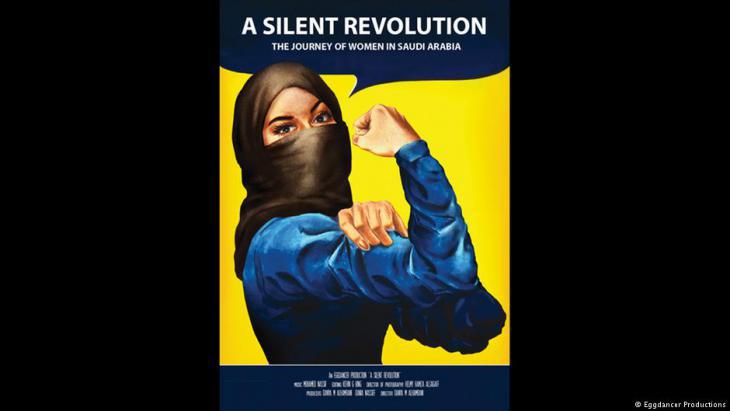
The documentary “A Silent Revolution”, which premiered in Berlin, features interviews with some 25 women who have played a pioneering role in fighting for women´s rights in Saudi Arabia – among them, the first Saudi women to take part in the Olympic Games, the first woman to publish a national newspaper, the first Saudi woman to head an UN agency – and a young Saudi who became the first woman from the Gulf state to conquer Mount Everest.
Is this what inspired you to make your film “The Silent Revolution”?
Nassief: So many things did: working with international companies, including the BBC; noticing how Saudi women were portrayed in the wrong way; having people ask about our story … We wanted to tell the stories of Saudi women, of the struggles and the obstacles they face along the way.
In the film you show the extraordinary achievements of women who reach the top — literally, in the case of Raha Moharrak, the first Saudi woman to conquer Mount Everest. Since you produced the film, change has begun affecting the entire population. What´s going on?
Alhamrani: Something that’s really interesting is that because of our segregation in our society, most of these women didn’t really go from the bottom up, they actually started straight at the top. So they came in as CEOs, as deans of universities, as heads of their departments, as doctors and things like that, because they were pioneers, they were the first in their field. Because of the segregation, when women were needed in these positions, they came in at the top.
The current changes are affecting people across the board, so they’re affecting people at entry-level positions. For most communities who fought for women’s rights around the world, they fought because they wanted to join the work force, to join the factories or to be lower entry-level workers. In a way, we did it the opposite way around, we came from the top and now it’s starting to trickle down.
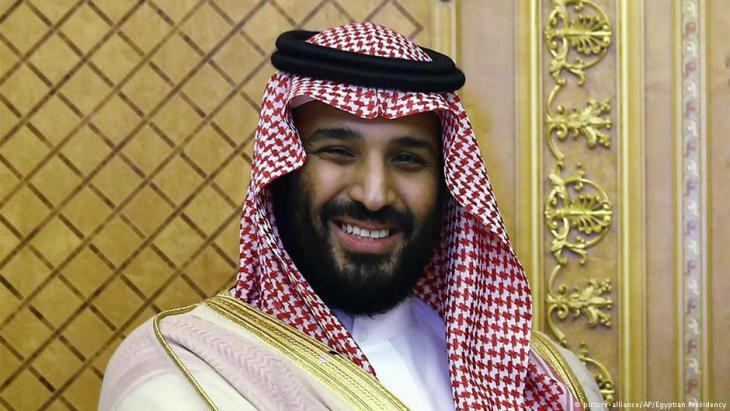
For some time now, Crown Prince Mohammed bin Salman has been pursuing an economic and social modernisation programme known as Vision 2030. The aim is to diversify the country´s economy, reducing Saudi Arabia´s dependence on oil during times of low oil prices
The Vision 2030 plan launched by Crown Prince Salman is intended to improve the situation of many women. Is he likely to encounter any obstacles?
Nassief: I don’t think there are any obstacles!
Alhamrani: [laughs] We get this question all the time – it’s such a typical question, because that is what the West keeps thinking. There are obstacles everywhere in the world. Change is inevitable; that is evolution. It’s just interesting to see what people regard as “huge obstacles” – those things we apparently still have to overcome. No doubt, there have always been obstacles and there will be more — but we’re just getting on with our lives.
Nassief: I get the impression that western countries want us to look like them, without a headscarf, living their lifestyle. This is not necessarily something that we want. We have a different culture; we have a different family structure. We cover up for religious reasons; it’s not forced on us by our family or by the government. It’s a choice.
Women will begin driving this year. When you were young, could you have imagined that women would be driving one day, or is it something you didn’t really think about?
Alhamrani: Driving was never an issue…
Nassief: …Maybe be allowed to drive was a hot topic for some; others were happy that women were allowed to attend a football match. Different things affect different women.
I believe there are many things to be angry about concerning women’s rights, not just in Saudi Arabia but worldwide. Yet your film – and the way you describe things now – is very positive, as if everything is simply bound to change, that it’s easy…
Alhamrani: No it’s not easy. There are going to be obstacles for sure. There was cultural pushback. Once women started going to school, they wanted to make sure that they didn’t do something that could anger the ultra-conservatives. Some people got death threats. I’m not saying there aren’t obstacles. It’s just that now we’ve come so far that I don’t know how relevant these obstacles are today. Maybe that’s being naive, but it’s not something that we’re encountering in our daily life, so it’s hard to think about what these obstacles could be. The reality is that we’re just living like anybody else.
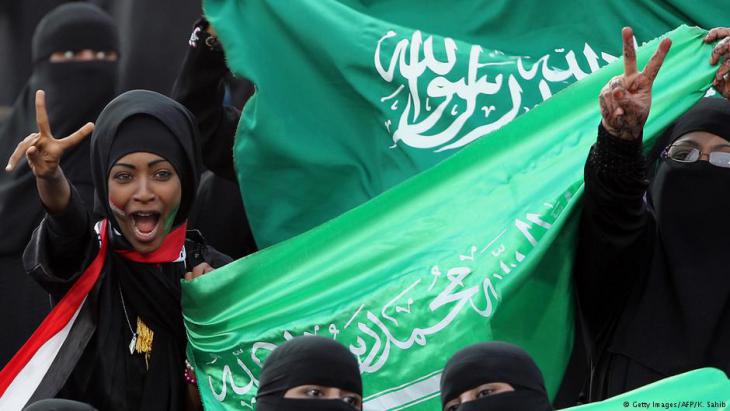
Major achievement: in recent months, the arch-conservative Saudi monarchy has approved various measures that look set to improve the lot of women: from June onwards, women will be allowed to drive cars, schoolgirls are now allowed to participate in sport lessons, and men and women were allowed to celebrate the country´s national holiday together in the stadium for the first time. Saudi media showed photos of women in the stands in Jeddah wearing striped fan scarves over their long black robes
This question is perhaps naive as well, considering the topic of your film, but do you see yourself as feminists?
Alhamrani: I don’t know … I definitely support women. I believe in equal opportunities for women, 100 percent. Is that feminism? It might be. This is one of my favourite lines in the film, it gives me shivers every time: “I don’t know if I’m becoming a feminist or not, but women in this country are powerful. And they are powerful because they endure.” That is true everywhere.
Now that cinemas are re-opening in Saudi Arabia, will this film be shown in the country?
Alhamrani: We hope so, it would be great! But they might focus on mainstream films. Documentaries aren’t as popular.
Interview: Elizabeth Grenier





